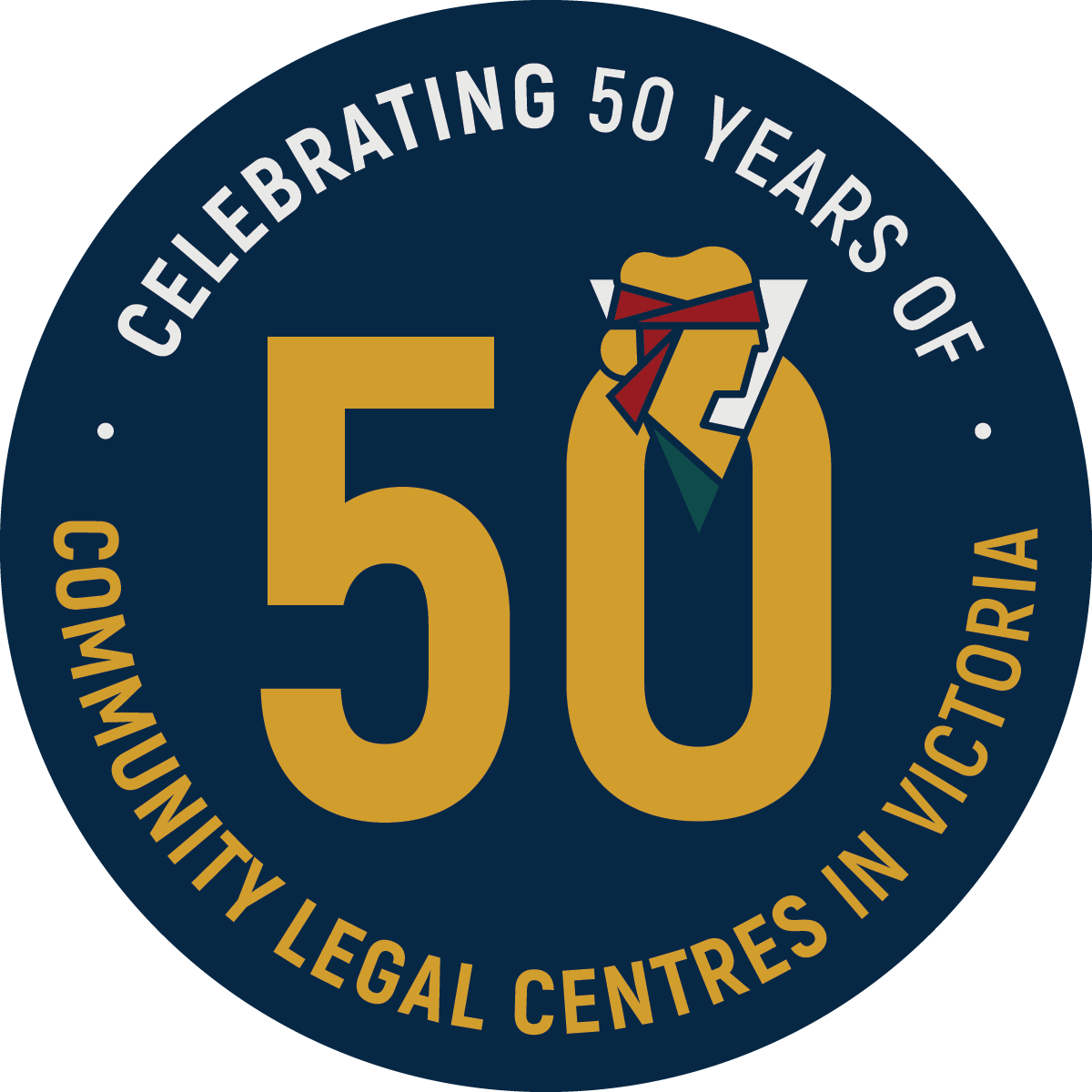



Victims of Crime
The content on this site is information only and is not legal advice. If you need legal advice please contact us.
Financial support when you need it most
If you’re the victim of a crime, the Victorian Government recognises that you may bear a financial burden due to ongoing trauma, injuries, or other issues. The victims of crime compensation scheme is designed to ease the load. Learn more about what’s involved and whether you can claim.
What is victims of crime compensation?
Victims of crime (VOC) compensation is money paid to a person who has suffered because of a violent crime.
A person can be affected if they witnessed a violent crime, or if they are related to someone who was injured or killed because of a violent crime.
You can get VOC compensation for injuries and loss including:
- Physical injury
- Mental or emotional injury
- Financial loss
VOC compensation may cover expenses which include:
- Counselling costs
- Medical expenses such as ambulance fees
- Lump sum payments in recognition of the harm you have suffered
- Funeral costs
- Replacement costs for damaged clothing
- Lost earnings up to $20,000
- Safety-related expenses, for example relocation costs and security cameras
To be eligible for compensation, you must meet specific criteria, including:
- The crime occurred in Victoria
- The crime was violent, causing injury or death to another person
- The type of crime is punishable by imprisonment (although the alleged offender doesn’t need to be prosecuted or convicted of the crime)
- The crime was reported to Police within a reasonable time (this will depend on the circumstances), or you made a statutory declaration to explain why you didn’t report the crime to the Police
- The crime occurred within two years of the application for compensation (unless an exception applies)
- You helped the Police with their investigation (unless special circumstances prevented you)
If you want to apply for victims of crime (VOC) compensation, you must make an application to the Victims of Crime Assistance Tribunal (VOCAT). Making an application to VOCAT is free.
You need to complete an application form, which will require information, including:
- Whether the violent crime was committed against you, you witnessed the crime, or are related to someone who was killed as a result of the crime
- Details of the crime
- Details of the Police report
- Details of the injury
- Whether you receive financial help from any other schemes (for example, WorkCover or the Transport Accident Commission)
- Whether you want to attend a hearing to determine VOC compensation
- What type of VOC compensation you are seeking
You can file your application online, or at your nearest Magistrates’ Court.
Once you file your application with VOCAT, you will have three months to file a Statement of Claim. VOCAT will give you (or your lawyer) instructions about how to do this. The Statement of Claim is a more detailed document about the crime, your injuries, the type of compensation you’re seeking, and other information. You will need to support it with evidence, for example:
- Medical reports
- Expert reports
- Any quotes
- Any time off work
- Personal statements
- Witness statements
For more information, see VOCAT’s webpage, Supporting Documentation.
Once you’ve gathered all the information, you need to file it with VOCAT and advise that you’re ready to proceed with your application. If you don’t meet the three-month deadline or arrange an extension of time, VOCAT may strike out (dismiss) your application without deciding whether you should receive compensation.
When your application is ready to proceed, VOCAT will allocate a time for a hearing. You can decide whether to attend the hearing. For some people, it helps to tell the Tribunal about how the crime has affected them. For others, this risks re-living the trauma. It’s a personal decision.
VOCAT may make a decision based on the information in your documents. Occasionally, it may ask for more information. It may hold a special hearing if this happens.
Once you file your statement of claim, VOCAT usually decides within weeks, unless it requires more information.
VOCAT will write to you letting you know of its decision. If you disagree with the decision and wish to appeal, you have 28 days from the date of the decision to appeal to the Victorian Civil and Administrative Tribunal (VCAT).
Because VOCAT requires detailed information in the application and statement of claim, some people find the process stressful. We recommend getting a lawyer to help you with the application and hearing process.
If you use a private lawyer and your application is successful, VOCAT may pay your legal costs.
We provide free legal advice and help with VOCAT applications. We help complete application forms, gather documents and help you prepare for hearings. We can also write to your psychologist and other medical experts to arrange reports in support of your application. Contact us for a free appointment to learn more about how we can help you.
There is no fee to make a VOCAT application. You can get free legal advice and representation from Barwon Community Legal Service, Victoria Legal Aid, or another community legal service. If you use a private lawyer, your reasonable legal fees will be paid by VOCAT if your application is successful.
If VOCAT requires a psychologist report in support of your application, most psychologists won’t charge you a fee to provide a report. Often, VOCAT will pay them for this.
You need to be aware of the following time limits:
- You must file your Victims of Crime Assistance Tribunal (VOCAT) application within two years of the crime
- In limited circumstances, even if the two-year limit has passed, you may be able to apply for VOC compensation if you have a good reason for not applying earlier. For example, you had suppressed the trauma of your sexual assault, and it wasn’t until years later that the effects started to surface
- There’s no time limit to make an application if you suffered physical or sexual abuse as a child (meaning that you were under the age of 18 years when you were abused)
If you disagree with a VOCAT decision, you have 28 days to appeal to the Victorian Civil and Administrative Tribunal (VCAT).
If you have used up the VOC compensation and need more financial help, you have six years (from the date of the VOCAT decision) to apply for further funding. For example, the original decision may have awarded you funding for 15 psychologist’s sessions, but you need a further 15 sessions.
Pete’s compensation claim
Pete is 25 years old. As a ten-year-old, a family member sexually assaulted him. Just recently, he started experiencing trauma because of the assault, but which he had suppressed for many years. He had to leave his job due to severe anxiety and had started seeing a psychologist. He was struggling to pay his bills without a job and with no prospect of returning to work.
Pete decided to talk to a lawyer to find out whether he could get any financial support.
He took his lawyer’s advice and reported the assault to the Police. However, after so many years, there wasn’t enough evidence for the Police to prosecute the offender.
Even though the offender wasn’t prosecuted, Pete’s lawyer suggested that he make a victims of crime compensation claim. His lawyer helped with the application and organised a report from his psychologist at no cost. Pete’s lawyer also helped him record how the assault had affected him at the time and how it continues to affect him.
VOCAT awarded Pete a Special Financial Assistance payment of $10,000 (the maximum amount), paid for a further 20 sessions with his psychologist and $3,000 for other therapies recommended by the psychologist.
Usually, you’re not required to attend a hearing at the Victims of Crime Assistance Tribunal (VOCAT) unless you want to. Some people find it helpful to tell VOCAT how the crime affected them. Others may worry that they will re-live the trauma. It’s a personal decision – you do what’s right for you.
In rare circumstances, if VOCAT needs more information before making a decision, it may ask you to attend a hearing to give evidence. If you’re required to attend a hearing, contact us for legal advice.
VOCAT will only notify an offender of an application in rare circumstances. Usually, VOCAT hears applications and makes decisions without involving the offender.
Even if you have to attend a hearing, usually the offender won’t be there.
If VOCAT advises you that the offender will be at the hearing, contact us for legal advice.
Yes. You can appeal a Victims of Crime Assistance Tribunal (VOCAT) decision by applying to the Victorian Civil and Administrative Tribunal (VCAT).
You have 28 days from the date of the VOCAT decision to appeal. If you are considering an appeal, contact us for free legal advice.
In most circumstances, you can’t make a Victims of Crime Assistance Tribunal (VOCAT) claim for damage to your property. For example, if someone damaged your fence in a criminal act, you’re not eligible to claim. The assistance is only for people who have been affected by acts of violence.
You might be able to claim compensation for your clothing if it was damaged in a violent criminal act.
After you file your application with the Victims of Crime Assistance Tribunal (VOCAT), you have three months in which to file a Statement of Claim and supporting documents. Some people need longer to gather all the necessary evidence and medical reports. If you need longer than three months, you need to tell VOCAT as soon as possible.
VOCAT usually decides within a few weeks after you lodge all the documents. In most cases, you should receive a payment within six weeks of the decision.
For more information, see VOCAT’s website page, Payment to victims.
Yes, you can sue the offender. This type of legal action is known as a civil action. You can commence a civil action by filing a legal claim in a Court. This is a complicated process, because you need to work out how much to claim, in which Court to start the action, and then meet all Court requirements for presenting your claim and supporting information to the Court.
You will need specialist advice from a personal injury lawyer.
There are also some time limits which you must meet. For example, you must apply within, three years of the date the injury was discovered, or within 12 years from the date the injury was caused (whichever ended first).
How can Barwon Community Legal Service help me?
We can help you with free advice and representation, including:
- Preparing and lodging your Victims of Crime Assistance Tribunal (VOCAT) application
- Requesting medical reports and other supporting documents
- Preparing your Statement of Claim
- Lodging your Statement of Claim and supporting documents
- Communicating with VOCAT
Contact us to learn more about victims of crime compensation.
Take the financial stress out of the healing process
We can help you make a VOCAT compensation claim.
Call Us TodayLast modified on April 29th, 2021 at 9:56 am
The content on this site is information only and is not legal advice. If you need legal advice please contact us.